The Climate Justice Camp is a unique annual event that brings together hundreds of youth from across the Global South to build power in their journey towards climate justice. Led by climate groups across the Middle East and North Africa, youth organizers and mobilizers from almost 100 countries attended the week-long Climate Justice Camp in Lebanon.
We asked the Filipino youth who attended the camp about their motivations, experiences, and key takeaways from this global gathering.
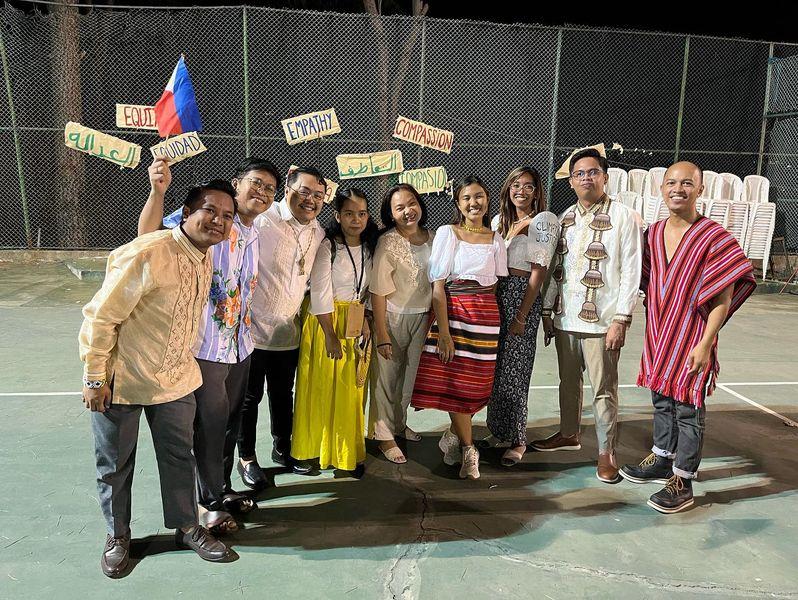
Why do you think the climate issue is important?
KC: The climate issue holds paramount importance due to its far-reaching consequences on our planet and its inhabitants. As a climate activist and policy specialist, I understand firsthand the urgency of addressing this crisis. The devastating impact of events like Typhoon Haiyan in 2013 underscores climate change’s immediate and long-term dangers.
The climate issue is of paramount importance because it impacts the well-being of current and future generations, transcending borders and industries. It demands immediate and concerted efforts to mitigate its effects, making it a central focus of my activism.
Alab: Being alive and present on the Earth now, it’s hard not to think that the climate issue is important since it’s so present in our daily life. The unbearable heat to the week-long, non-stop rains in the Philippines, the issue takes shape through the gut problems of communities like loss of livelihoods and displacement.
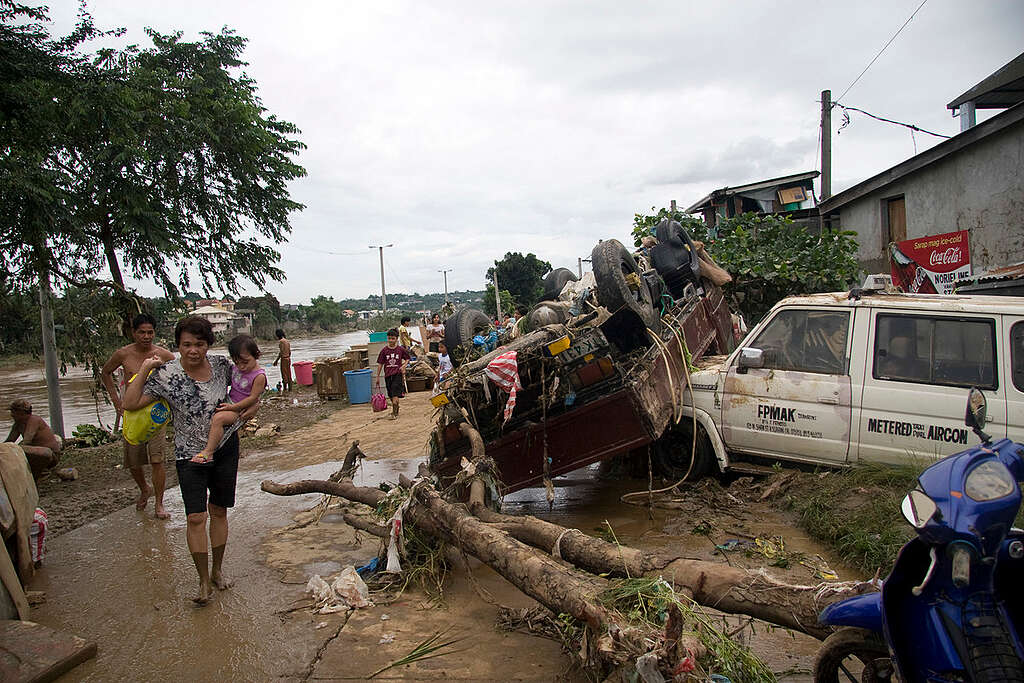
Bill: Discussing the climate issue is so important because, basically, what we’re generally aiming for here is the survival of human civilization. We can’t deny that humans are relying on the resources (biotic or abiotic) given by our planet, but the general public is still not educated enough to know that because of the greed of the few—the carbon majors—human civilization is at risk.
Joana: For me as a youth, it is very important to address the climate issue especially in the most vulnerable regions such as the Global South where my country belongs, the Philippines. My country is widely affected by the fossil fuel industry that is causing climate change.
Ronan: Coming from one of the most vulnerable and climate-impacted communities in the world, I have seen our people die and suffer from its wrath. Extreme weather events, disruption of the ecosystem, sea level rise and compromisation of our basic human rights threaten our everyday lives. The issues on climate and environment have burdened our survival that could have been spent on looking after our future and realizing our best potential. If this issue does not carry weight on others, perhaps they have not seen strong winds uprooting their house in front of them or have experienced setting aside their education so their entire family can recover after a supertyphoon trampled their finances.
Why did you decide to participate in the climate justice camp?
Bill: I decided to participate in the Climate Justice Camp because I’ve seen that it is important for the Philippines, specifically my vulnerable province, Albay, to have a voice in international movements.
Additionally, this gathering is about understanding the experiences of other climate activists and discussing how we can build solidarity through similarities and beyond differences.
Ronan: I see the climate justice camp as an opportunity to widen my understanding of the different struggles of vulnerable communities across the globe. This understanding would help me communicate better that our experiences, however different, may be related to theirs, and it is just as important to learn and hear from them.
I also wanted to bring the compelling narratives of my community in Eastern Visayas and the solutions we have shaped from years of engaging and working on research, communal listening and discussions, and brainstorming with various government bodies, civic society organizations and people from the frontline communities.
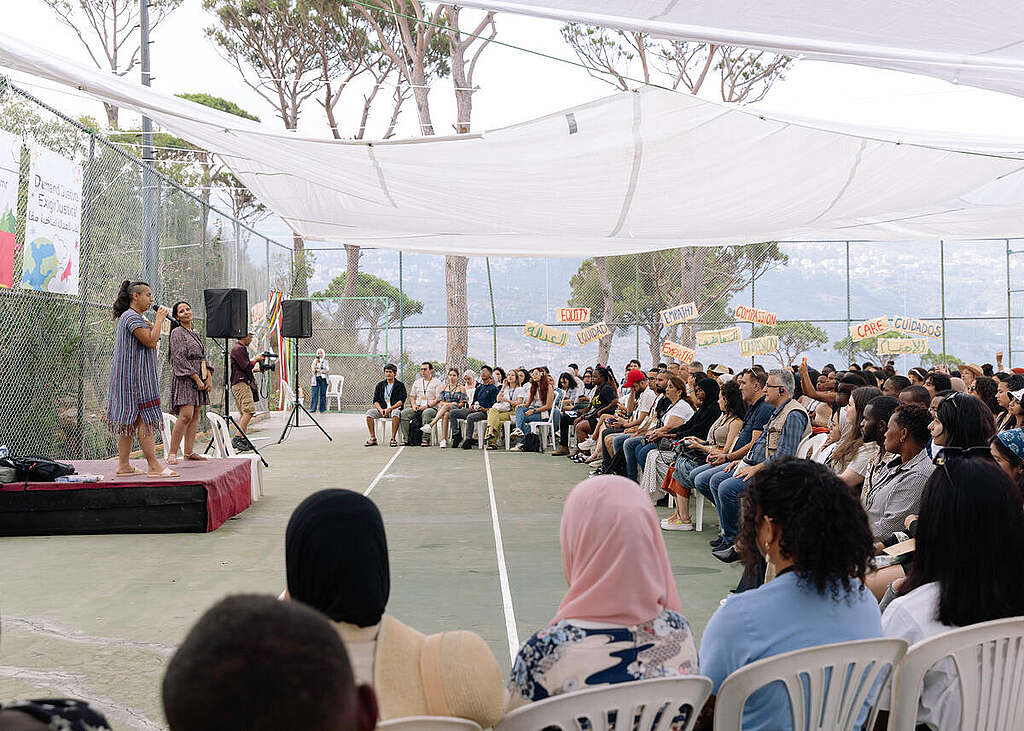
With the weight of our continued and shared struggles, my mission was clear when I went to the camp: to amplify our collective voices, nurture solidarity, weave a web of connections, craft potent declarations against those responsible for environmental degradation and climate change and develop solutions that will drive our communities towards resilience.
KC: In essence, my decision to join the Climate Justice camp in Lebanon was driven by the desire to learn from fellow activists, share my own experiences, and contribute to the global conversation on climate justice. It was a chance to be part of a collective effort to address one of the most pressing challenges of our time and work towards a more sustainable and equitable future.
Joana: I decided to take part in this year’s camp to know more about the tools that are available and used for climate action. I was also interested to hear the voices of other advocates and climate activists, who are calling for justice for climate-impacted communities and also doing it for the love of our environment.
What were the most eye-opening moments or experiences during the camp?
Alab: The camp gave a lot of opportunities to connect and hear stories from different countries. In one of the workshops on defending civic spaces, I learned about the police and state force brutality that Ugandan, Colombian and Pakistani activists are experiencing. Hearing the experiencing of international activists, and knowing the dangers that Filipino activists also face by simply speaking out, I felt a sense of solidarity as we all spoke about how we defend our rights and continue to still speak out. There are so many moments like this in the camp, even in the meal times where we are simply sharing our culture around food. The realization that we are all different, yet all so human, hits hard.
KC: One of the most impactful aspects of the Climate Justice camp was the opportunity to hear the personal stories and experiences of climate activists from around the world while emphasizing the theme of climate justice. These stories brought the global nature of the climate crisis and the urgent need for equity in climate action to the forefront, making it tangible and immediate. Listening to activists describe the direct and devastating impacts of climate change on their communities, such as villages disappearing due to rising sea levels or droughts leading to food insecurity, was deeply moving. These stories served as a stark reminder that climate change is not just a distant threat but a present reality affecting real people and their livelihoods.
The sense of global solidarity among activists at the camp, all while emphasizing climate justice, was another powerful experience. Despite diverse backgrounds and contexts, there was a shared commitment to addressing climate change and advocating for climate justice. This unity of purpose was a reminder that climate activism knows no borders and that collaboration on a global scale is essential to tackle the climate crisis effectively, with a particular emphasis on ensuring justice for the most vulnerable communities.
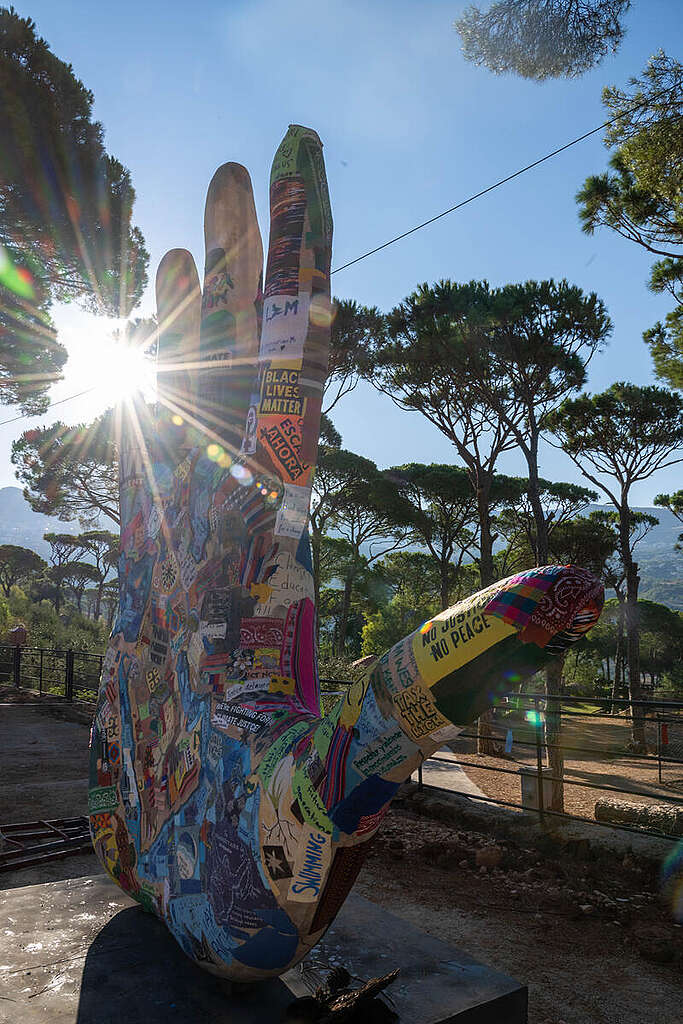
Bill: During the camp, the most eye-opening moment for me was seeing how the youth around the world, as a collective, expressed their demands for climate justice. I can clearly see that amidst the challenges, we strive harder, and we even become more creative with our actions.
Joana: The most eye-opening moment for me is when I heard the stories of people who had struggles during typhoons and other extreme weather events caused by climate change that they are experiencing in their communities.
What role does the youth play in addressing climate justice issues? And why is it important for the youth to be involved in spaces such as the climate justice camp?
KC: The role of youth in addressing climate justice issues is undeniably crucial. Young activists bring a dynamic and influential perspective to the fight against climate change. They are instrumental in driving change and innovation, often offering fresh ideas and solutions to complex environmental problems. The passion and dedication of youth activists are contagious, inspiring not only their peers but also older generations to take action.
Alab: The youth give a fresh perspective to old problems, giving modern, creative solutions that could advance the climate justice movement. The youth being present in these spaces also gives an opportunity for the movement to learn from each other, not just the youth giving new life but for the youth to also learn their history. International collaboration and partnership is integral for the collective action we need to achieve climate justice.
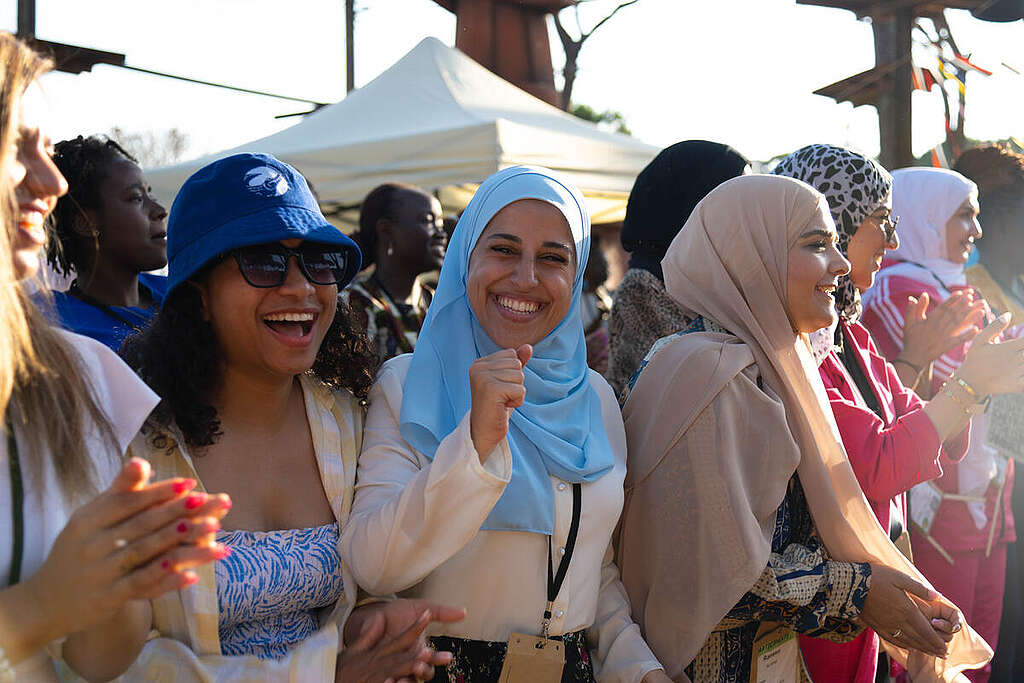
Joana: It is important for the youth to be involved in spaces like climate justice camps in order to widen the perspective and strengthen communities to fight for climate justice locally and globally.
Bill: It is important for the youth to be involved in spaces like the Climate Justice Camp because it is our future that we’re talking about. At the same time, we’ve seen how the old generations have been discussing things and nothing’s changed up until now. We’re still talking about things without enough action, so maybe the conversation led by the youth is more hopeful and could really stir for the change that we wanted to see.
Did the camp provide any practical tools or strategies for advocating for climate justice? How can these be applied in the Philippines or your local community?
KC: The Climate Justice camp provided invaluable tools and strategies that can be applied effectively in the Philippines or any local community. One of the key takeaways was the importance of community engagement and empowerment. This approach involves involving local communities in climate resilience and adaptation projects, giving them ownership over initiatives, and ensuring their voices are heard in climate policy decisions.
Advocacy and policy change were also emphasized, encouraging local activists to push for climate-resilient policies and equitable resource distribution. This means advocating for policies that prioritize vulnerable communities and address environmental injustices.
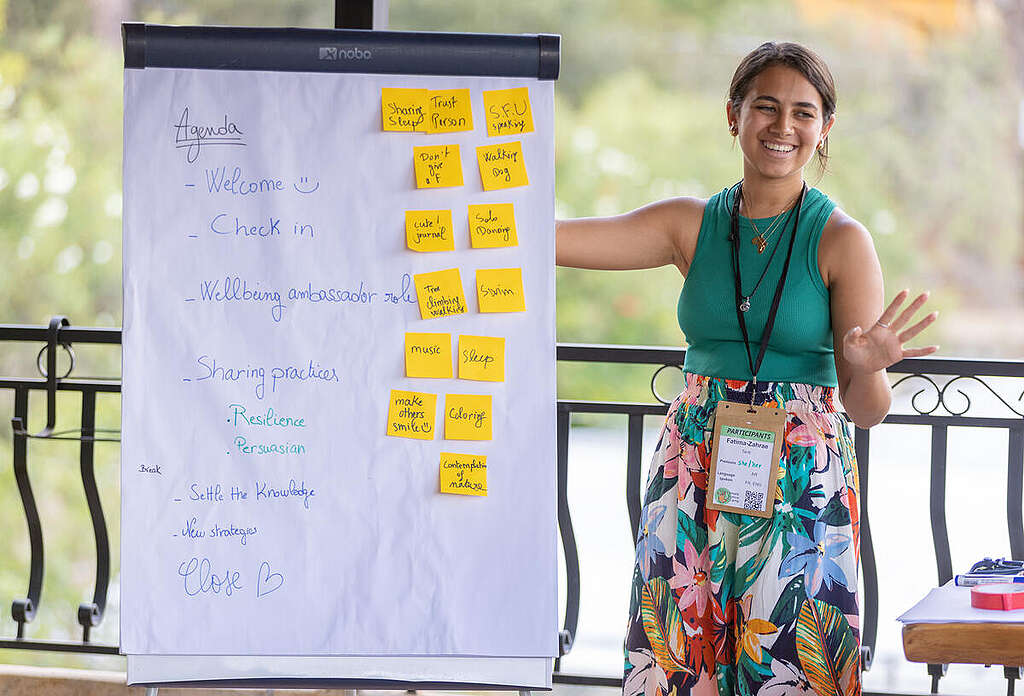
The camp emphasized youth leadership, urging young activists to take the lead in climate initiatives. In the Philippines, this can involve driving local climate projects, engaging with policymakers, and ensuring that youth voices are included in decision-making processes.
Global collaboration and partnerships were stressed as means to amplify impact. Local communities in the Philippines can connect with international networks and collaborate with other regions facing similar challenges. Sharing knowledge and experiences can lead to more effective climate justice advocacy.
Additionally, legal avenues for advocating for climate justice were discussed. This includes pursuing legal action against entities contributing to environmental degradation and climate change. Environmental lawyers and organizations can play a vital role in this aspect.
Alab: Outside of the workshops, the camp in a way provided us the tools to work better as we learned from each other. Best practices of organizing and mobilizing were shared in between sessions and especially during the sessions. Wisdom from older generations hold golden nuggets of information as it’s passed down to us newer generations of climate activists, learning from the long history of struggle.
Bill: I see how they use artwork to advocate for climate justice. For example, they make use of the textiles that we bring, which have meaningful stories of struggles and hope, to build the “hand” that symbolizes the power and solidarity of the climate justice movement.
How do you envision the future of climate activism and climate justice in the Philippines / globally?
KC: I envision the future of climate activism and climate justice in the Philippines and globally as a dynamic and transformative movement. As someone deeply committed to these causes, I see youth leadership as a driving force. Young activists, including myself, will continue to step into leadership roles, bringing our passion, innovation, and unwavering commitment to creating a sustainable future.
Alab: Locally, climate activism will continue to grow not just in the cities, but also in provinces where climate impacts are felt the most. Organizing the youth includes meeting the youth from all walks of life, especially those from the most marginalized sectors. By creating a strong youth movement, we will hold both the local government, global North nations, and international private sectors accountable for the destruction of the environment and to pay reparations for justice.
Bill: My only hope is that the government won’t see the activists as enemies of the progress of the country. It’s important that the government recognize the role and voice of the youth in this space. I envision that we’re in the future where, in the very beginning, we wouldn’t demand something that we need.

Meet the Filipino representatives who joined the camp:
Joana: I am Joana, a budding activist and environmental advocate. I am a part time tutor and I love to explore new things.
KC: I go by the name KC, short for Cresencio M. Bacolod. I am not only an Executive Assistant and Admin Specialist with professional experience in the United States and Australia, but I am also deeply committed to environmental causes as a climate activist and climate policy specialist. For nearly a decade, I have devoted a significant portion of my life to volunteering, with my journey in activism beginning in the aftermath of Typhoon Haiyan in 2013. My dual roles in the corporate world and the realm of climate advocacy have enriched my perspective and allowed me to make a meaningful impact on both fronts.
Ronan: I am Ronan Renz Napoto of Eastern Samar. I am a trained Industrial Engineer but am currently working on integrating engineering principles into development work. I am currently taking my Masters Degree on Development Sociology.
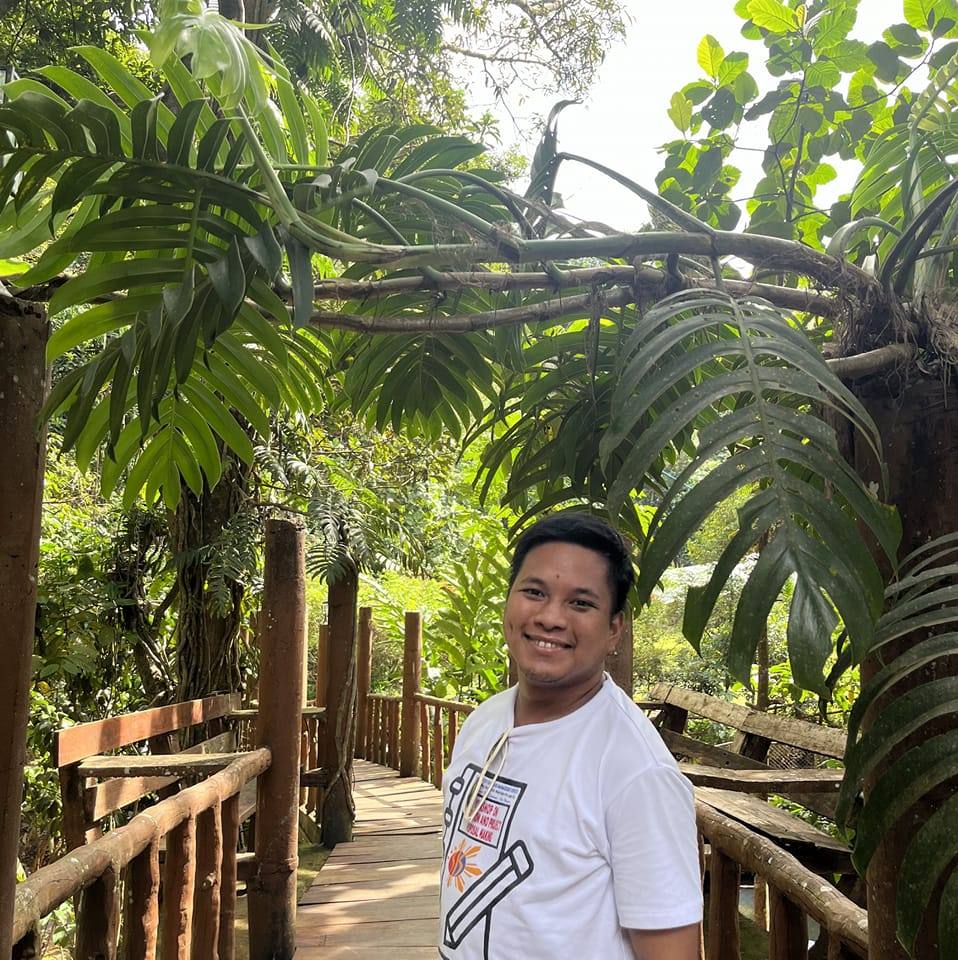
Bill Bontigao
I’m Bill Angelo B. Bontigao, and I’m a youth climate activist from Albay. Currently, I’m an active member of Angat Generation Climate, which is a youth-led and youth-serving movement focusing on climate education, climate justice, the advancement of renewable energy, and disaster risk readiness reduction campaigns.
I’m also a licensed professional science teacher, currently enrolled in the UP Diliman College of Education Grad. School taking up a Master of Arts in Education major in Environmental Science.

Alab Mirasol Ayroso
I am Alab Mirasol Ayroso, a full-time climate activist from the Philippines working as the national coordinator of Youth Advocates for Climate Action Philippines, the Fridays for Future of our country.
